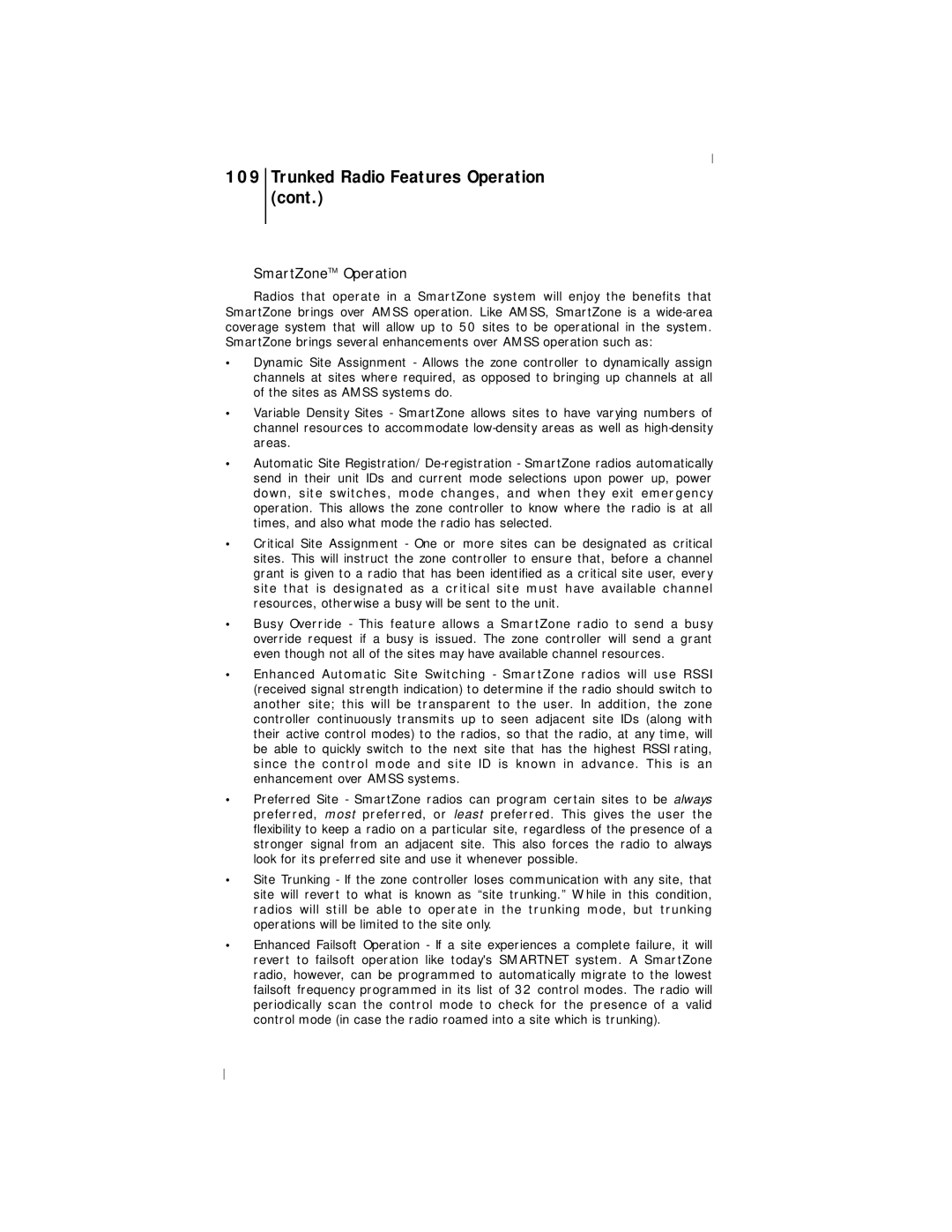109Trunked Radio Features Operation (cont.)
SmartZoneTM Operation
Radios that operate in a SmartZone system will enjoy the benefits that SmartZone brings over AMSS operation. Like AMSS, SmartZone is a
•Dynamic Site Assignment - Allows the zone controller to dynamically assign channels at sites where required, as opposed to bringing up channels at all of the sites as AMSS systems do.
•Variable Density Sites - SmartZone allows sites to have varying numbers of channel resources to accommodate
•Automatic Site
•Critical Site Assignment - One or more sites can be designated as critical sites. This will instruct the zone controller to ensure that, before a channel grant is given to a radio that has been identified as a critical site user, every site that is designated as a critical site must have available channel resources, otherwise a busy will be sent to the unit.
•Busy Override - This feature allows a SmartZone radio to send a busy override request if a busy is issued. The zone controller will send a grant even though not all of the sites may have available channel resources.
•Enhanced Automatic Site Switching - SmartZone radios will use RSSI (received signal strength indication) to determine if the radio should switch to another site; this will be transparent to the user. In addition, the zone controller continuously transmits up to seen adjacent site IDs (along with their active control modes) to the radios, so that the radio, at any time, will be able to quickly switch to the next site that has the highest RSSI rating, since the control mode and site ID is known in advance. This is an enhancement over AMSS systems.
•Preferred Site - SmartZone radios can program certain sites to be always preferred, most preferred, or least preferred. This gives the user the flexibility to keep a radio on a particular site, regardless of the presence of a stronger signal from an adjacent site. This also forces the radio to always look for its preferred site and use it whenever possible.
•Site Trunking - If the zone controller loses communication with any site, that site will revert to what is known as “site trunking.” While in this condition, radios will still be able to operate in the trunking mode, but trunking operations will be limited to the site only.
•Enhanced Failsoft Operation - If a site experiences a complete failure, it will revert to failsoft operation like today's SMARTNET system. A SmartZone radio, however, can be programmed to automatically migrate to the lowest failsoft frequency programmed in its list of 32 control modes. The radio will periodically scan the control mode to check for the presence of a valid control mode (in case the radio roamed into a site which is trunking).
